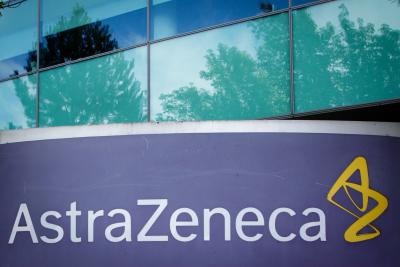New Delhi, Nov 23 : AstraZeneca announced Monday that positive high-level results from an interim analysis of clinical trials of the Covid-19 vaccine candidate in the UK and Brazil showed it was highly effective in preventing the disease, the primary endpoint, and no hospitalisations or severe cases of the disease were reported in participants receiving the vaccine. There were a total of 131 Covid-19 cases in the interim analysis.
One dosing regimen showed vaccine efficacy of 90 per cent when AZD1222 was given as a half dose, followed by a full dose at least one month apart, and another dosing regimen showed 62 per cent efficacy when given as two full doses at least one month apart. The combined analysis from both dosing regimens resulted in an average efficacy of 70 per cent.
All results were statistically significant. More data will continue to accumulate and additional analysis will be conducted, refining the efficacy reading and establishing the duration of protection.
An independent Data Safety Monitoring Board determined that the analysis met its primary endpoint showing protection from COVID-19 occurring 14 days or more after receiving two doses of the vaccine. No serious safety events related to the vaccine have been confirmed. AZD1222 was well tolerated across both dosing regimens.
AstraZeneca will now immediately prepare regulatory submission of the data to authorities around the world that have a framework in place for conditional or early approval. The Company will seek an Emergency Use Listing from the World Health Organization for an accelerated pathway to vaccine availability in low-income countries. In parallel, the full analysis of the interim results is being submitted for publication in a peer-reviewed journal.
Professor Andrew Pollard, Chief Investigator of the Oxford Vaccine Trial at Oxford, said,
“These findings show that we have an effective vaccine that will save many lives. Excitingly, we’ve found that one of our dosing regimens may be around 90 per cent effective and if this dosing regime is used, more people could be vaccinated with planned vaccine supply. Today’s announcement is only possible thanks to the many volunteers in our trial, and the hard working and talented team of researchers based around the world.”
Pascal Soriot, Chief Executive Officer, said: “Today marks an important milestone in our fight against the pandemic. This vaccine’s efficacy and safety confirm that it will be highly effective against COVID-19 and will have an immediate impact on this public health emergency. Furthermore, the vaccine’s simple supply chain and our no-profit pledge and commitment to broad, equitable and timely access means it will be affordable and globally available, supplying hundreds of millions of doses on approval.”
The pooled analysis included data from the Phase II/III trial in the UK and Phase III trial in Brazil. Over 23,000 participants are being assessed following two doses of either a half-dose/full-dose regimen or a regimen of two full doses of AZD1222 or a comparator, meningococcal conjugate vaccine called MenACWY or saline. The global trials are evaluating participants aged 18 years or over from diverse racial and geographic groups who are healthy or have stable underlying medical conditions.
Clinical trials are also being conducted in the US, Japan, Russia, South Africa, Kenya and Latin America with planned trials in other European and Asian countries. In total, the Company expects to enrol up to 60,000 participants globally.
The Company is making rapid progress in manufacturing with a capacity of up to 3 billion doses of the vaccine in 2021 on a rolling basis, pending regulatory approval. The vaccine can be stored, transported and handled at normal refrigerated conditions (2-8 degrees Celsius/ 36-46 degrees Fahrenheit) for at least six months and administered within existing healthcare settings.
AstraZeneca continues to engage with governments, multilateral organisations and collaborators around the world to ensure broad and equitable access to the vaccine at no profit for the duration of the pandemic.
Disclaimer: This story is auto-generated from IANS service.

